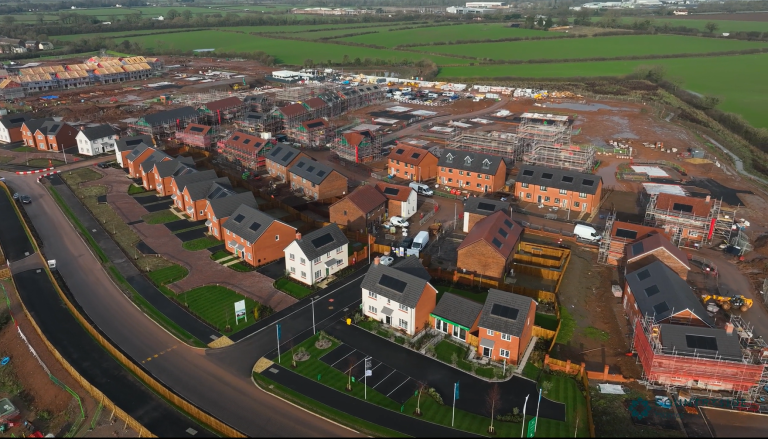Every parking space in your next commercial or residential development will need to support electric vehicles. As a C-level executive or developer, you’re designing for a world where EV charging infrastructure sits alongside Wi-Fi and HVAC as a baseline utility. What makes charging different is the power demand, revenue potential, and software requirements needed to integrate with existing energy systems. Why will EV charging become a default feature in buildings? Three forces are converging: tenant expectations, regulatory pressure, and fleet operator demands, reshaping how developers approach parking infrastructure. How tenant, employee, and EV fleet expectations are reshaping building design Tenants ask about EV charging before signing leases. At the same time, employees expect workplace charging as part of their compensation package. Fleet operators take this a step further by excluding sites without dedicated charging capacity from their location searches. Consider what’s happening in major markets. Norway passed 90% EV share of new car sales in 2023, while California mandates that all new car sales be zero-emission by 2035. As a result, properties without charging infrastructure lose tenants to competitors who planned ahead. Adding chargers after construction costs significantly more than building infrastructure from the start: Planning for charging during initial design saves capital and avoids operational disruptions. For CTOs and product leaders at building management platforms, understanding these market dynamics helps position offerings correctly. What does software-driven EV charging look like inside a building? Software transforms charging infrastructure from basic electrical service into intelligent energy systems. In practice, this means buildings manage power differently, coordinate with other systems better, and adapt to changing conditions faster. Smart charging and load management on top of the limited grid capacity Your building’s electrical service has a ceiling. Twenty EV chargers pulling maximum power simultaneously can trip breakers or trigger costly demand charges. An EV charging management system monitors total building demand and adjusts charger output dynamically. Smart charging and load management capabilities include: This dynamic balancing keeps buildings under demand limits without expensive service upgrades while eliminating conflicts over access. Coordinating EV charging infrastructure with HVAC, solar, and storage Buildings run multiple energy assets that must work together rather than compete for the same electrons. Here are the regulated energy assets requiring coordination: Without coordination, these systems work against each other. For instance, solar exports to the grid while chargers import expensive peak power. Similarly, storage charges during high-price hours when it should discharge. Integration with building energy management systems (BEMS) solves this. The BEMS sees solar production, battery state of charge, time-of-use tariffs, and EV charging demand, then orchestrates everything to minimize cost and maximize onsite energy use. When solar output peaks, EV charging ramps up automatically. Conversely, when the grid sends demand response signals, chargers pause and storage discharges. This coordination requires APIs and event-driven architecture. In other words, your EV charging software must communicate with BEMS, metering systems, and utility tariff feeds through compatible protocols. How can an EV software development company integrate charging with building systems? Integration creates control loops responding to building conditions in real time. As a result, these loops enable operational capabilities that weren’t available before. Connecting EV charging management software with BEMS and metering EV charging management software for buildings exchanges data and control signals with existing systems through a structured flow: Step 1: Session initiation and authentication Step 2: Real-time load monitoring Step 3: Dynamic power allocation Step 4: Session logging and billing Step 5: Reporting and analytics Submetering becomes critical in mixed-use buildings where retail, office, and residential tenants share parking. In these cases, the software tracks which vehicles are charged and allocates costs accordingly. Using APIs and event-driven architecture to sync tariffs, access control, and reporting Building operators need flexibility as utility tariffs change seasonally, access policies differ by user type, and reporting requirements vary by region. Event-driven architecture provides several key capabilities: This approach supports new use cases as they emerge. For example, offering dynamic pricing for EV charging in buildings becomes possible without system overhauls. Likewise, adding vehicle-to-grid capability later works because event architecture already handles bidirectional power flow. Partnering with an experienced EV software development company ensures these integrations are designed correctly from the start. What new business models appear when buildings run software-driven EV charging? Software-enabled charging infrastructure creates revenue opportunities that basic electrical service couldn’t support. Dynamic pricing, shared public/tenant charging, and workplace EV fleet charging Dynamic pricing aligns incentives better than fixed rates: Shared charging opens additional revenue streams. Parking garages serve tenants during the day and public users at night, while software manages access, pricing, and billing automatically. EV fleet charging in depots and workplaces adds another layer. Delivery companies leasing space need reliable charging without overpaying for peak power: These models work because EV software development supports flexible pricing, access control, and billing across user types. Preparing building sites for vehicle-to-grid and flexibility markets by design Vehicle-to-grid (V2G) turns parked cars into distributed energy resources. When grid demand spikes, vehicles discharge stored energy back to the building or grid, allowing property owners to earn revenue. Pilot programs operate in California, the UK, and Denmark. Designing vehicle-to-grid ready architecture in buildings requires: Buildings with onsite storage, solar, and V2G-ready architecture become energy hubs buying power when cheap and selling when prices spike. What should developers and operators ask from EV charging software solutions? Selecting the right platform requires evaluating current capabilities and future-readiness. The choices you make now will affect building competitiveness for years to come. Requirements checklist for scalable, building-ready EV charging infrastructure Start with scalability questions. Can the platform handle ten chargers today and a hundred next year? Does it support multiple sites under one account? Can it integrate with existing property management and billing systems? Beyond these basics, key technical requirements include: Access and authentication: Monitoring and analytics: Integration and reporting: Interoperability matters. Your EV charging management system should work with chargers from multiple hardware vendors to avoid lock-in and protect your investment through open protocols. How to evaluate an EV














